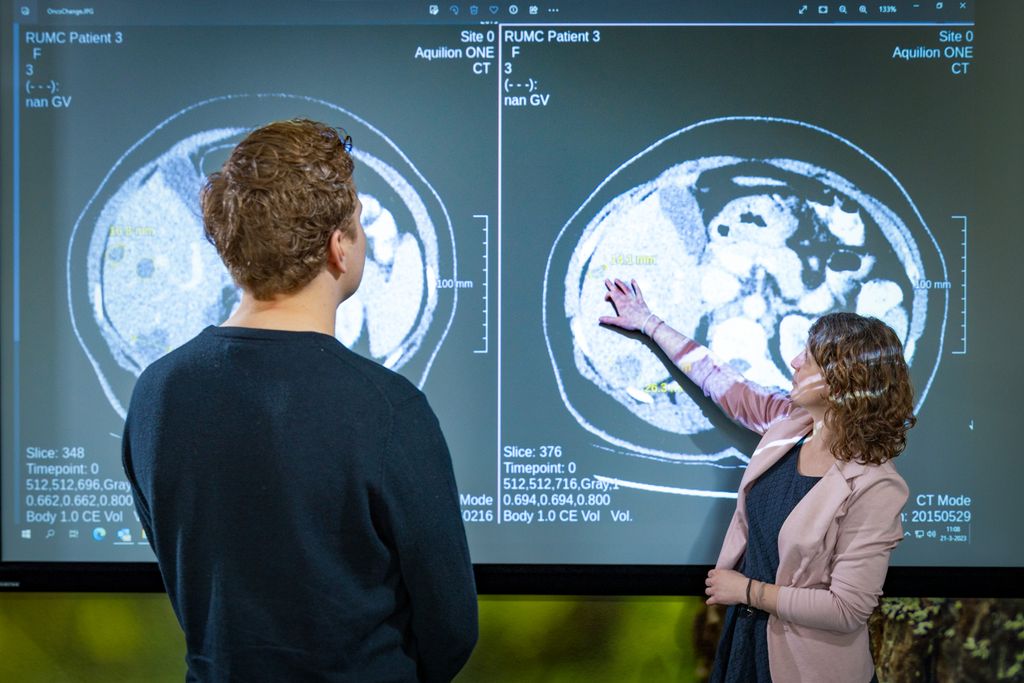
Background
Cancer continues to be a major public health and economic burden, with 19.3 million new cases and 10 million deaths worldwide in 2020. As the global population ages, the incidence and mortality from cancer are expected to rise by 47% to 28.4 million new cases by 2040. Medical imaging, including CT and MRI scans, is critical in the management of nearly all types of cancer. These technologies are integral from the initial detection and diagnosis to staging, treatment planning, monitoring responses, and long-term follow-up. There is a significant opportunity to enhance these processes through Artificial Intelligence (AI), which promises to improve both the efficiency and quality of image-based medical diagnostics.
Job description
The goal of this PhD project is to develop an AI-based model for automatic detection and precise segmentation of metastasis in CT images. To achieve this, the project will leverage multi-modal AI technologies, integrating a diverse array of data sources, including radiological text data, primary tumor locations, and essential clinical patient information such as age and tumor markers.
This project is a collaborative effort between the fields of radiology and AI research, ensuring you receive expert guidance from leading scientists in both disciplines. Moreover, due to our integration with the Department of Imaging, you will have access to an extensive collection of annotated CT scans and radiological reports, providing a rich dataset for research.
Tasks and responsibilites
- Conduct research in the development of multi-modal AI for metastatic cancer
- Collaborate with a multidisciplinary team to translate cutting-edge technology into clinical practice
- Publish research findings in peer-reviewed journals and present at international conferences
- Mentor junior team members and contribute to the development of the lab's research direction
Profile
- be a creative and enthusiastic researcher with an MSc degree in Computer Science, Mathematics, Physics, Engineering or similar
- have a clear interest to develop artificial intelligence algorithms and an affinity with healthcare
- have good communication skills and enjoy working in a multidisciplinary team
- have expertise in software development, preferably in Python
- having experience with deep learning, machine learning, and image analysis is a plus.
Terms of employment
You will be appointed for four years as a PhD student with the standard salary and secondary conditions for PhD students in the Netherlands. The research should result in a PhD thesis.
Organization
You will work in the Diagnostic Image Analysis Group (DIAG) DIAG is part of the Departments of Imaging, Pathology, Ophthalmology, and Radiation Oncology of Radboud University Medical Center. We develop computer algorithms to interpret and process medical images. The group currently consists of around 70 researchers. Radboud University Medical Center and Radboud University are located in Nijmegen, the oldest Dutch city with a rich history and one of the liveliest city centers in the Netherlands. Radboud University has over 17,000 students. Radboud UMC is a leading academic center for medical science, education and health care with over 8,500 staff and 3,000 students.
Information
For more information please contact Alessa Hering by e-mail.
Application
Use the Apply button on this page to apply for this position. You should supply - motivation letter - your CV including links to a Google Scholar profile - list of grades and courses you have followed including online courses on deep learning and similar topics, - links to any publications you have written - Any code you have written and is publicly accessible, e.g., on a GitHub account. This application will remain open until the position has been filled. Applications are processed immediately upon receipt.
